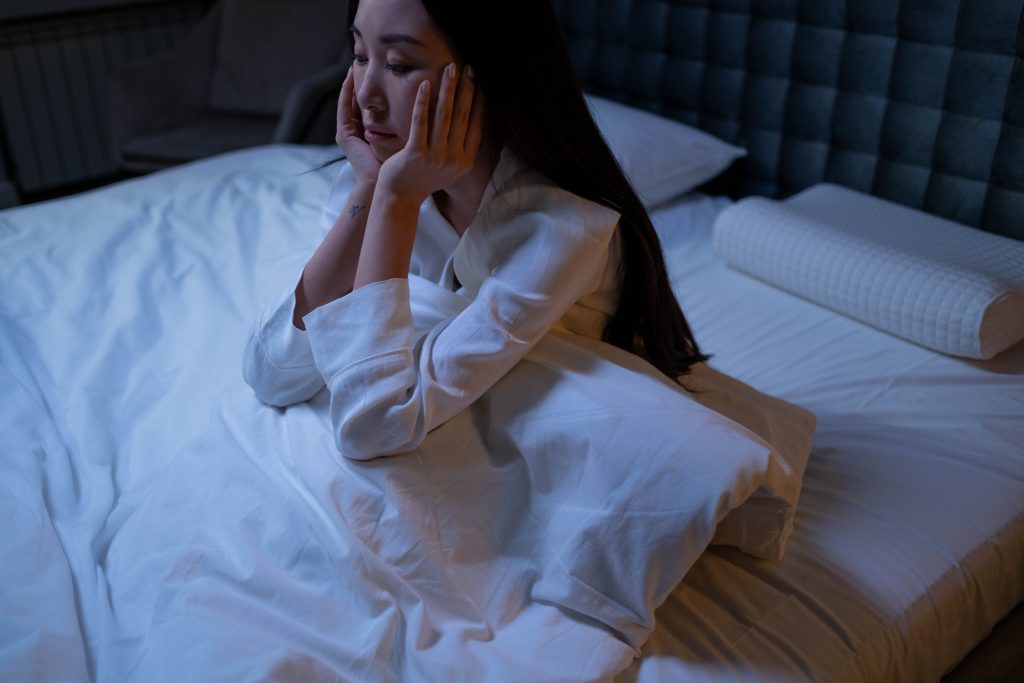Learn how exercise can help improve your sleep and combat insomnia.
Discover the Benefits of Exercise for Insomnia
Do you find yourself tossing and turning at night, unable to fall asleep no matter how hard you try? If so, you’re not alone. Insomnia affects millions of people worldwide and can have a significant impact on their daily lives. But fear not, because I have some good news for you. Exercise might just be the key to getting a restful night’s sleep.
Understanding Insomnia: Causes and Effects

Before we delve into the magical world of exercise, let’s take a moment to understand what insomnia is all about. Insomnia, often referred to as the “nighttime visitor who won’t leave,” is a sleep disorder that disrupts your sleep, preventing you from getting the rest your body and mind desperately need. It can be caused by a variety of reasons, including stress, anxiety, poor sleep habits, and even medical conditions. The effects of insomnia are far-reaching and can affect both your physical and mental health, leaving you feeling tired, irritable, and unable to concentrate.
The Science Behind Insomnia
Insomnia is not just a simple case of tossing and turning in bed. It is a complex sleep disorder that has intrigued scientists for years. Researchers believe that a combination of factors contribute to insomnia, including an overactive mind, an imbalance in certain chemicals in the brain, and even genetic predisposition. These factors can disrupt the delicate balance of sleep-wake cycles, making it difficult for individuals with insomnia to fall asleep or stay asleep throughout the night.
Imagine your brain as a bustling city, with different neurotransmitters acting as messengers, sending signals to regulate your sleep-wake cycles. In individuals with insomnia, these messengers may become imbalanced, leading to a disruption in the natural sleep process. This imbalance can cause the mind to race with thoughts, making it nearly impossible to achieve a restful night’s sleep.
How Insomnia Impacts Daily Life
Insomnia doesn’t just affect your sleep; it can have a profound impact on your daily life. Picture this: you’ve had a sleepless night, and the next day your energy levels are at an all-time low. Suddenly, even the simplest tasks become Herculean challenges. Your productivity plummets, and your mood takes a nosedive. Insomnia can make you feel like a grumpy grouch, and nobody wants that.
But the effects of insomnia go beyond feeling tired and irritable. Chronic insomnia has been linked to a variety of health problems, including an increased risk of developing cardiovascular diseases, diabetes, and obesity. It can weaken the immune system, making you more susceptible to illnesses. Additionally, insomnia can impair cognitive function, affecting your ability to concentrate, remember information, and make decisions.
Furthermore, the impact of insomnia extends beyond the individual experiencing it. It can strain relationships, as sleep deprivation can lead to irritability and mood swings. It can also affect work performance, leading to decreased productivity and increased absenteeism. Insomnia becomes a vicious cycle, as the stress and anxiety caused by the lack of sleep can further perpetuate the sleepless nights.
It is essential to address insomnia and seek appropriate treatment to break free from its grasp. By understanding the causes and effects of insomnia, we can take steps towards improving our sleep habits, managing stress, and seeking professional help when needed. Remember, a good night’s sleep is not just a luxury; it is a necessity for our overall well-being.
The Connection Between Exercise and Sleep
Now that we know how insomnia wreaks havoc on our lives, it’s time to explore the link between exercise and sleep. Exercise has been scientifically proven to enhance the quality and duration of sleep. It’s like a lullaby for your body and mind, soothing them into a peaceful slumber.
But how exactly does exercise affect our sleep? Let’s dive deeper into the role of exercise in sleep regulation.
The Role of Exercise in Sleep Regulation
Exercise acts as a regulator for your body’s internal sleep clock. When you engage in physical activity, your body temperature rises, and then cools down afterward. This drop in temperature signals to your brain that it’s time to hit the hay. So next time you can’t sleep, forget counting sheep and count your steps instead.
Not only does exercise help regulate your body temperature, but it also releases endorphins, those feel-good hormones that can reduce stress and anxiety. By reducing these negative emotions, exercise sets the stage for a more relaxed and restful sleep.
Furthermore, exercise promotes the production of adenosine, a chemical in the brain that accumulates during wakefulness and contributes to sleep drive. So, by increasing adenosine levels through exercise, you’re essentially telling your brain, “Hey, it’s time to wind down and get some shut-eye.”
Types of Exercise to Improve Sleep
Not all exercises are created equal when it comes to sleep improvement. Some activities work wonders in lulling you into dreamland, while others may have you counting not-so-sleepy stars all night long. The key is to find what suits you best.
Aerobic exercises like jogging or swimming are great for improving sleep quality. These activities get your heart pumping, increase blood flow, and release those endorphins we mentioned earlier. The combination of physical exertion and the subsequent cooldown helps prepare your body for a deep and rejuvenating sleep.
On the other hand, if you’re looking for a more calming approach to improve your sleep, consider activities such as yoga or tai chi. These gentle exercises focus on stretching, breathing, and mindfulness, which can help relax your body and mind. By incorporating these practices into your routine, you can create a peaceful bedtime ritual that promotes better sleep.
Remember, consistency is key when it comes to reaping the sleep benefits of exercise. Aim for at least 30 minutes of moderate-intensity exercise most days of the week, but listen to your body and adjust accordingly. With the right exercise routine, you’ll be well on your way to achieving a blissful night’s sleep.
Exercise Routines to Combat Insomnia
Now that you know the power of exercise in combating insomnia, it’s time to put that knowledge into action. Let’s explore two exercise routines that will have you nodding off in no time.
Morning Exercise Regimen
Rise and shine, sleepyhead! Starting your day with exercise not only boosts your energy levels but also sets the stage for a good night’s sleep. This regimen can be as simple as a morning walk or a quick jog around the block. Get those endorphins flowing and watch your sleep troubles float away.
Imagine waking up to the sound of birds chirping, the sun peeking through your curtains, and the fresh morning air filling your lungs. As you step outside, the cool breeze gently brushes against your face, invigorating your senses. You begin your morning exercise routine, feeling the warmth of the sun on your skin and the pavement beneath your feet.
As you walk or jog, your body starts to awaken, and your mind becomes clear. The rhythmic movement of your legs and the steady beat of your heart create a soothing harmony, melting away any lingering stress or anxiety. With each step, you feel a sense of accomplishment, knowing that you are taking care of both your physical and mental well-being.
The world around you comes alive as you pass by blooming flowers, lush green trees, and friendly neighbors starting their day. The sights and sounds of nature embrace you, filling you with a deep sense of peace and tranquility. Your worries and troubles seem to fade away, replaced by a renewed sense of optimism and positivity.
As you reach the end of your morning exercise routine, you feel a surge of energy coursing through your veins. Your body is awake, your mind is alert, and you are ready to take on the day. With a smile on your face, you head back home, knowing that a restful night’s sleep awaits you later.
Evening Exercise Regimen
As the sun sets and the world gets ready for slumber, it’s the perfect time to engage in some restorative exercises. Avoid high-intensity workouts close to bedtime, as they might leave you feeling more wired than tired. Instead, focus on activities that promote relaxation, like gentle stretching or a slow-paced bicycle ride. Let your body know it’s time to wind down and prepare for a night of sweet dreams.
Picture yourself in the peaceful serenity of the evening, as the golden hues of the setting sun paint the sky. The air is calm and still, creating a soothing atmosphere that invites you to unwind and let go of the day’s stresses. You step outside, feeling the soft grass beneath your feet and the gentle breeze caressing your skin.
You begin your evening exercise regimen, engaging in gentle stretches that release tension from your muscles. Each stretch is deliberate and mindful, allowing you to connect with your body and let go of any lingering tightness or discomfort. As you move through each stretch, you feel a sense of relief and relaxation washing over you.
After your stretching session, you hop on your bicycle and embark on a slow-paced ride through your neighborhood. The rhythmic pedaling creates a gentle rhythm, syncing with the calmness of the evening. As you glide through the streets, you take in the quiet beauty of the surroundings, appreciating the subtle details that often go unnoticed during the hustle and bustle of the day.
The cool evening air fills your lungs, rejuvenating your body and mind. With each pedal stroke, you feel a sense of release, letting go of any lingering thoughts or worries. The world around you seems to slow down, allowing you to fully embrace the present moment and savor the tranquility that comes with it.
As you return home from your evening exercise regimen, a sense of peace and contentment fills your being. Your body is relaxed, your mind is calm, and you are ready to embrace a restful night’s sleep. With a grateful heart, you bid farewell to the day, knowing that the exercises you have engaged in have prepared you for a night of deep and rejuvenating slumber.
The Psychological Benefits of Exercise for Insomnia
Exercise isn’t just a physical solution to insomnia; it also provides a myriad of psychological benefits. Let’s discover how exercise can be your BFF (Best Friend for better sleep and Fun).
Stress Reduction and Exercise
Feeling stressed? Exercise is here to save the day! Physical activity releases endorphins, those little brain chemicals that make you feel oh-so-good. They act as natural stress-busters, melting away your worries and anxieties. So lace up those sneakers and let the stress melt away.
Exercise and Mood Improvement
When you’re sleep-deprived, your mood can resemble a rollercoaster ride with more downs than ups. But fear not, exercise is here to be your mood’s knight in shining armor. Regular physical activity has been shown to improve mood and decrease symptoms of depression and anxiety. So say goodbye to the grumpy blues and hello to a healthier, happier you!
Safety Tips for Exercising with Insomnia
Now that you’re all revved up and ready to embark on your exercise journey, let’s not forget about safety. Here are some tips to ensure you’re exercising smartly while battling insomnia.

Precautions for Nighttime Exercise
Nighttime exercise can be magical, but it’s essential to take precautions to ensure your safety. Make sure you choose well-lit areas to exercise and wear reflective clothing if you’re venturing outside. Also, avoid high-intensity workouts right before bedtime, as they may leave you too energized to sleep.
When to Seek Medical Advice
While exercise can work wonders in combating insomnia, it’s important to consult your healthcare provider if you’re experiencing chronic sleep difficulties. They can help pinpoint any underlying issues and provide personalized advice and treatment.
In Conclusion
You don’t have to accept sleepless nights as your fate. With exercise as your trusty sidekick, you can conquer insomnia and enjoy the sweet embrace of a restful night’s sleep. So, lace up those sneakers, try out different exercises, and get ready to discover a world of sleeping wonders. Goodbye, insomnia. Hello, dreamland!







